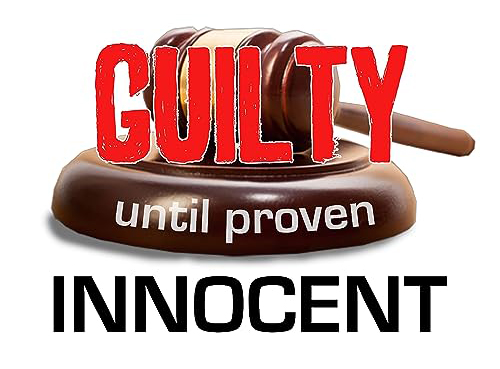We post news and comment on federal criminal justice issues, focused primarily on trial and post-conviction matters, legislative initiatives, and sentencing issues.

INNOCENCE ≠ COMPASSION
 Everyone knows that paying your bills on time helps you build a strong credit history. That is probably the least of a host of good reasons for not doing what New York City drug lord Jeffrey Minaya did in 2000 instead of paying a Mexican cartel the $6.5 million he owed for 274 kilos of cocaine. He decided instead to whack the two cartel members who had been sent to the Big Apple to collect.
Everyone knows that paying your bills on time helps you build a strong credit history. That is probably the least of a host of good reasons for not doing what New York City drug lord Jeffrey Minaya did in 2000 instead of paying a Mexican cartel the $6.5 million he owed for 274 kilos of cocaine. He decided instead to whack the two cartel members who had been sent to the Big Apple to collect.
The drug lord hired Patrick Darge to shoot the bill collectors, and Pat, in turn, subcontracted backup duties to his cousin Joe Fernandez. The two guys sent from Mexico to pick up the loot were murdered in a rather ham-handed hit, but somehow the authorities were stymied as to the identity of the perps for over a decade.
However, in 2011, after Joe had accumulated a wife and kids, a regular job, and a clean record ever since the murder he was allegedly part of, he got picked up and charged.
 Joe went to trial, where the government deployed his cousin, star witness Patrick Darge, to testify against him. This was significant because no one else could put Joe at the murder scene. On cross-examination, Pat admitted that as a cooperating witness in a different case, he lied to government agents and the judge about his involvement in two prior murders, his history of credit card fraud, the extent to which he dealt drugs, his brother’s involvement in his drug dealing business, and his brother’s habit of “shooting people.” Despite Pat’s admitted prevarications, the jury believed him and convicted Joe both of an 18 USC § 1958 murder-for-hire conspiracy resulting in two deaths and use of a firearm to commit two murders in violation of 18 USC §§ 924(j)(1). Joe was sentenced to two life sentences.
Joe went to trial, where the government deployed his cousin, star witness Patrick Darge, to testify against him. This was significant because no one else could put Joe at the murder scene. On cross-examination, Pat admitted that as a cooperating witness in a different case, he lied to government agents and the judge about his involvement in two prior murders, his history of credit card fraud, the extent to which he dealt drugs, his brother’s involvement in his drug dealing business, and his brother’s habit of “shooting people.” Despite Pat’s admitted prevarications, the jury believed him and convicted Joe both of an 18 USC § 1958 murder-for-hire conspiracy resulting in two deaths and use of a firearm to commit two murders in violation of 18 USC §§ 924(j)(1). Joe was sentenced to two life sentences.
Joe appealed, arguing that Pat’s history of lies meant the jury should not have believed him. Joe lost. He then filed a 28 USC § 2255 post-conviction motion, arguing he was actually innocent and that the § 924(j) conviction in light of United States v. Davis. The court vacated the § 924(j) conviction, leaving Joe with only one life sentence to serve.
 In 2020, after about nine years in prison, Joe filed a motion for sentence reduction under 18 USC § 3582(c)(1)(A), a so-called compassionate release motion. Joe argued that his potential innocence in light of Pat’s non-credible testimony and the disparity between his life sentence and the considerably lower sentences imposed on his co-defendants were “extraordinary and compelling reasons” for a sentence reduction.
In 2020, after about nine years in prison, Joe filed a motion for sentence reduction under 18 USC § 3582(c)(1)(A), a so-called compassionate release motion. Joe argued that his potential innocence in light of Pat’s non-credible testimony and the disparity between his life sentence and the considerably lower sentences imposed on his co-defendants were “extraordinary and compelling reasons” for a sentence reduction.
The district court was persuaded by Joe’s potential innocence and sentencing disparity grounds:
Although there is factual support for the jury’s verdict and the verdict has been affirmed, a certain disquiet remains. Did Patrick Darge sacrifice his cousin, Petitioner Fernandez, to save his brother, Alain Darge? Patrick and Alain ran to the Dominican Republic directly after the murders of Cuellar and Flores. Joe Fernandez did not. Fernandez was arrested 11 years after the murder, in his home, with his family. He was earning a living and had no record of violence. Patrick Darge had considerable motive to lie and had lied before to the Government in order to obtain more favorable treatment for himself and his brother. Additionally, the physical evidence indicated that all but one bullet fired at the scene of the crime came from a .380 caliber gun, which was the gun Darge used, despite the fact that Darge claimed Fernandez fired nearly all the shots.
The district court granted Joe’s motion, and Joe went free. Until this week, when the 2nd Circuit reversed the district court.
The 2nd held that Joe’s sentencing disparity is not an extraordinary and compelling reason to reduce his sentence “under the plain meaning of the statute.” It is not extraordinary, the 2nd held, “(indeed, it should be expected) that a defendant who proceeds to trial and is convicted receives a longer sentence than his co-defendants who plead guilty to different crimes, accept responsibility, and assist the government by cooperating.” Nor is the disparity between Joe’s sentence and his co-defendants’ sentences “compelling”. Disparities between the sentences of coconspirators can exist for valid reasons, the Circuit ruled, “such as… the offenses of conviction, or one coconspirator’s decision to plead guilty and cooperate with the government.”
As for Joe’s potential innocence claim, the appellate court held that “a specific statute will not be controlled or nullified by a general one, regardless of the priority of enactment, unless there is a “clear intention otherwise.” The post-conviction remedy afforded by 28 USC § 2255 “places explicit restrictions on the timing of a habeas petition and the permissibility of serial petitions… Neither of these restrictions appl[ies] to a § 3582 motion.” The Circuit observed:
If Congress had intended to permit defendants to circumvent the strictures of 28 USC § 2255 by making challenges to the validity of a conviction cognizable on a compassionate release motion, it would surely have said so. Absent such a clear declaration of intent, we conclude that since challenges to the validity of a conviction must be made under § 2255, they cannot qualify as “extraordinary and compelling reasons” under § 3582(c)(1)(A). Compassionate release is not a channel to habeas relief or an end run around the limitations of § 2255.
 Joe may have a pretty strong argument that he is innocent, a sacrificial lamb for the sins of his cousins. But if there’s a procedural means of getting him to a point that a court can actually entertain that claim, compassionate release is not it.
Joe may have a pretty strong argument that he is innocent, a sacrificial lamb for the sins of his cousins. But if there’s a procedural means of getting him to a point that a court can actually entertain that claim, compassionate release is not it.
United States v. Fernandez, Case No. 22-3122-cr, 2024 U.S. App. LEXIS 14133 (2d Cir. June 11, 2024)
United States v. Davis, 588 U.S. 445 (2019)
– Thomas L. Root

